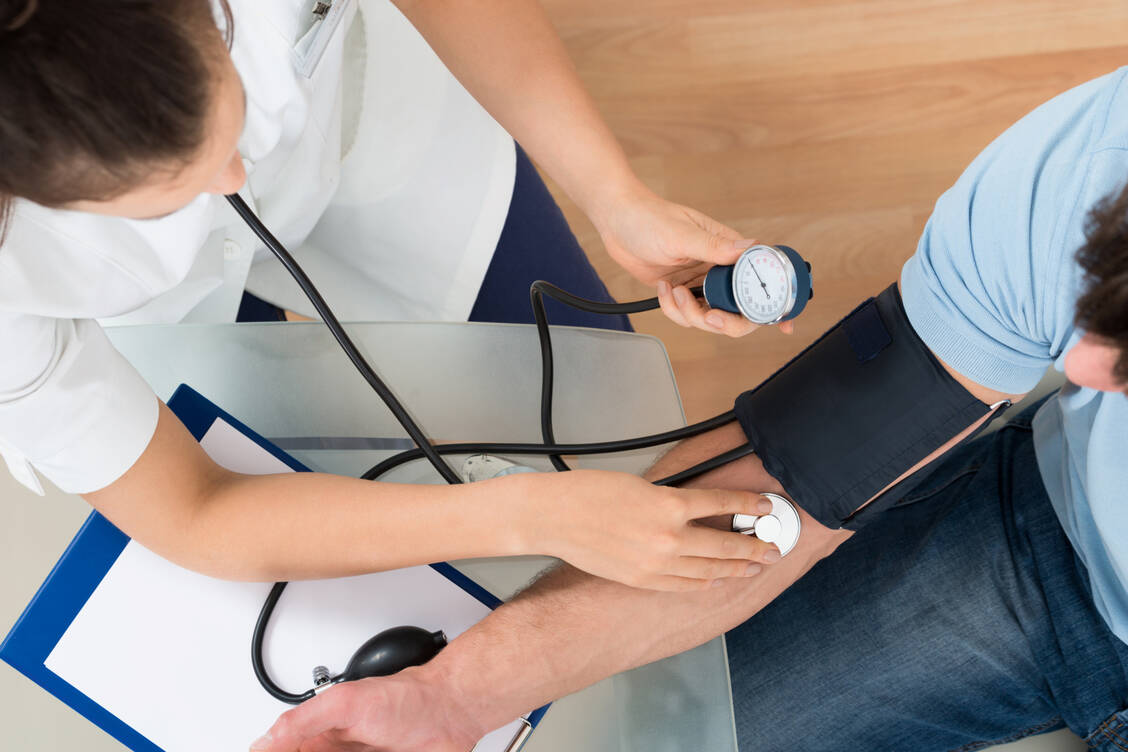The orthostatic hypotension, which mainly occurs on change of position, needs to be differentiated from the constitutional or essential hypotension. The human body can change from lying or sitting to a standing position without the blood sinking in the legs. This capability is called orthostasis reaction. Here, the sympathetic nervous system reacts as quick as lightning, narrows the blood vessels and increases the heartbeat. These mechanisms do not function well in the case of the orthostatic hypotension. The venous backflow to the heart is reduced. The result: giddiness, tinnitus, decreased physical and mental performance and in the worst case a short fainting fit. When customers tell the chemist about fainting or a blackout, they are normally worried. Such a sudden short blackout results from a temporary ischemia in the brain, the consequence being loss of consciousness. Medics call this phenomenon syncope. As a rule, this occurrence lasts less than 20 seconds. It can come »out of the blue« or be announced by nausea, flushing, giddiness, soft knees, warm or sweating palms, diminishing vision or a queasy feeling in the stomach. The biggest problem that can arise from such a short-lasting unconsciousness are bruises or even fractures when falling.







